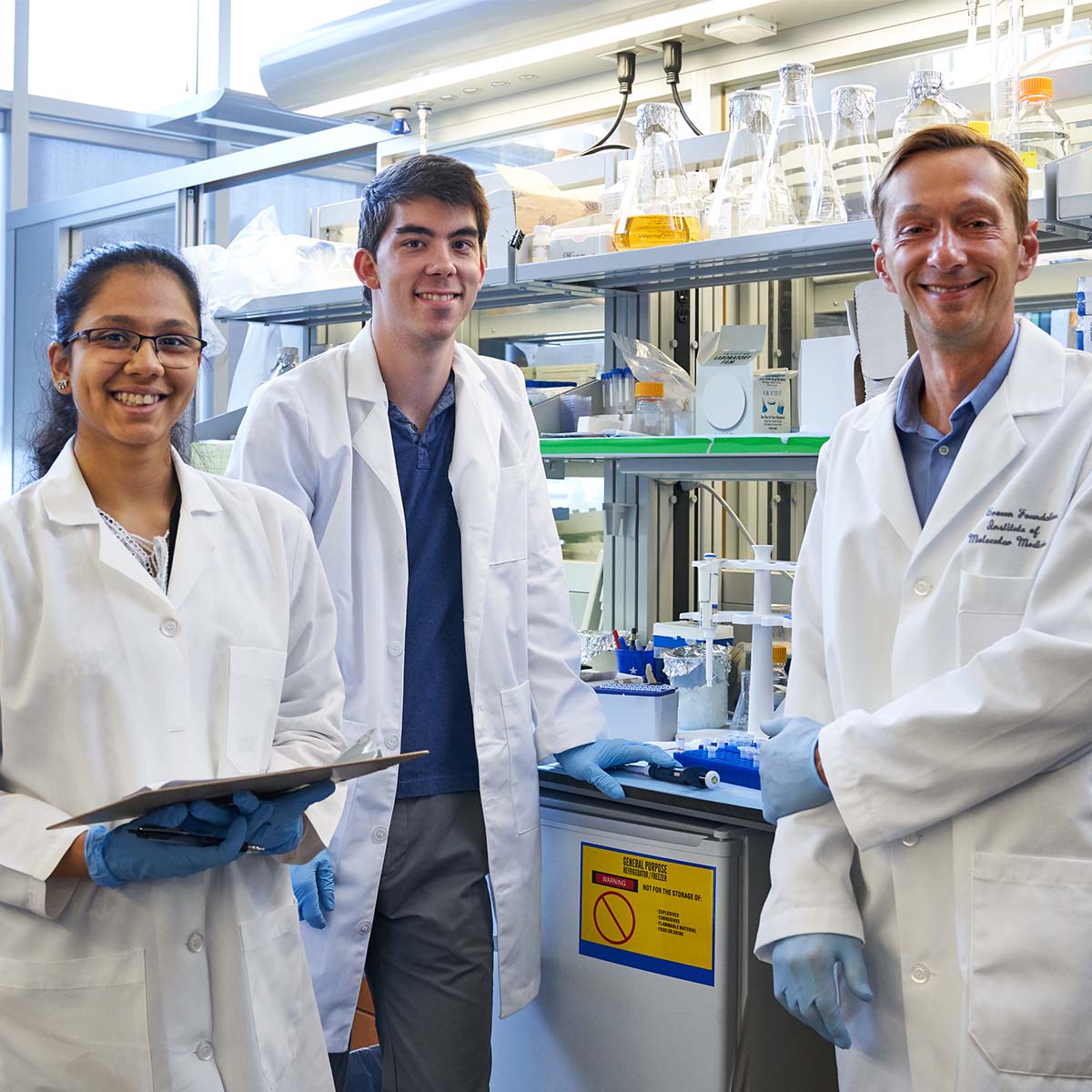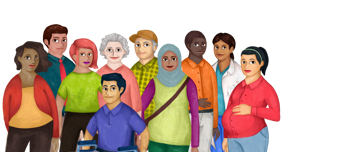
All of Us lab workers process participant data (Credit: NIH)
Expanded precision medicine dataset includes survey data from nearly 330,000 participants, COVID-19 survey responses from nearly 100,000, and Fitbit records from more than 11,600
The National Institutes of Health’s All of Us Research Program has announced a significant increase in the COVID-19 data available in its precision medicine database, adding survey responses from more than 37,000 additional participants, and virus-related diagnosis and treatment data from the nearly 215,000 participant electronic health records (EHRs) that are currently available. The program has also expanded its collection of wearable data to now include 11,670 paired participant Fitbit records, a 42% increase from its last update, making this one of the largest publicly-available sets of digital health technology data available.
“The COVID-19 pandemic has been the most significant public health crisis of our lives, but the burden has disproportionately fallen on those historically underrepresented in medical research. Engaging a diverse participant community will allow researchers to better understand the impact of COVID-19, as well as other emerging diseases," said Josh Denny, MD, MS, chief executive officer of the All of Us Research Program. “This unmatched dataset goes beyond ‘one moment in time’ to observe both subtle and significant changes participants experienced in their daily life, as well as mental and physical health, over the first year of the pandemic.”
The COVID-19 survey data announced today builds on responses provided in similar surveys from May to August 2020. In total, the dataset now includes responses from nearly 100,000 participants. These responses provide insight into participants’ support system, reported physical activity, levels of social connection and loneliness, and perceived discrimination during this tumultuous time. For example, 17% of participant respondents reported a reduction in income, while 60% reported feeling nervous and anxious, according to data summaries available in the publicly-available All of Us Data Browser.
Additionally, most COVID-19 EHR data are now available. Additional data, specifically vaccination status of participants, will be released in future data expansions. Together, the combined EHR records and longitudinal COPE Survey data provide a unique dataset for addressing important questions related to the pandemic.
The data are available through the All of Us Researcher Workbench, the program’s platform for data analysis, which was first released in May 2020 and remains available as a beta version to registered researchers. The new data has been curated on the secure, cloud-based platform to enable registered researchers to easily look at data across different sources—such as EHRs, wearables technology, surveys, and physical measurements—to offer a more detailed picture of participants’ health.
The Researcher Workbench has already served as a foundation for discovery. To date, more than 1,000 researchers have registered for data access and initiated more than 660 research projects. The analysis spans many areas of medicine, including topics such as early cases of COVID-19, predictive analytics for glaucoma in the U.S., the experiences of cancer survivors, and obesity.
The program’s data access model supports broad access for researchers across varied settings and career stages to facilitate greater equity, so more researchers and different kinds of organizations can collaborate and gain insights that benefit diverse communities. Researchers interested in exploring the data and conducting analyses can apply for access after their institutions have signed a data use agreement with the program. At this time, any U.S.-based academic, nonprofit, or health care organization can enter into a data use agreement with the program.
“We are continually evolving and improving the research tools and data available to make the platform as accessible, collaborative, and impactful as possible,” said Paul Harris, PhD, principal investigator of the All of Us Data and Research Center, led by Vanderbilt University Medical Center. “We are also supporting researchers throughout their journey with a range of resources, from tutorials and sample datasets and reusable analysis notebooks, to user forums and an active help desk staffed by experts who can answer questions and solicit feedback.”
The Researcher Workbench is updated about twice a year with new participant data and additional records from existing participants, as well as new data types and improved research tools, if available. The program anticipates releasing the first set of genomic data in the next refresh, anticipated this winter.
All of Us is a registered service mark of the U.S. Department of Health & Human Services (HHS).
